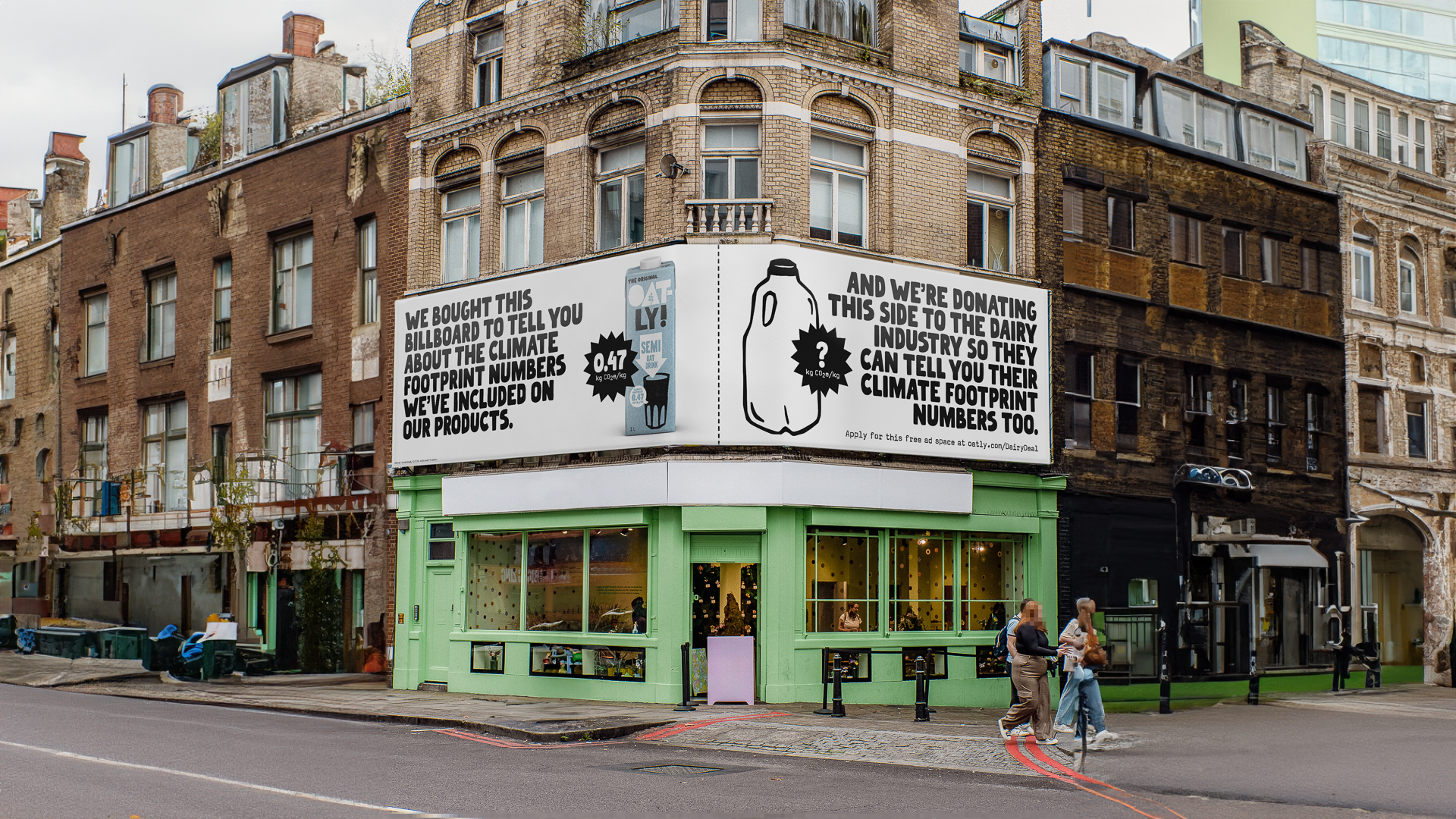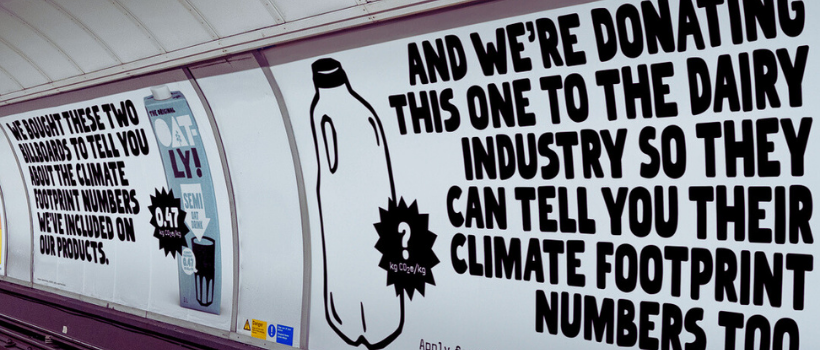In a bid to improve transparency about the environmental impact of our food and drink industry, the plant-based milk company Oatly has asked dairy companies in the UK to reveal their carbon footprint on prepaid advertising space.
Searching for ways to reduce the severity of our impact on the environment has become a defining feature of our generation’s time.
We know that even the smallest changes to our daily habits can add up to hugely positive results, which is why many people around the world have started to alter their diets as a way to reduce their carbon footprint.
This explains the rise in popularity of plant-based diets and products, in particular, the success of Oatly, a Swedish food company that specialises in plant-based milk.
Though the company has had its fair share of controversies, the company has become one of the leading milk alternatives on the global market. Now, it is extending its brand power to provide free advertising space for dairy companies.
This may sound contradictory to their own purpose, but there’s a method to the madness here.
Alongside streetside and Underground ads that outline the carbon footprint of Oatly’s products is another large advertisement that calls upon British dairy farmers to reveal the carbon footprint of their own operations.
The goal is to increase transparency about the carbon emissions caused by the food industry while pushing a wider agenda to get all food items sold in the UK labelled with their carbon footprint.






















